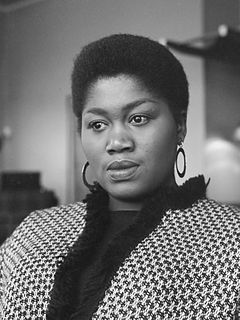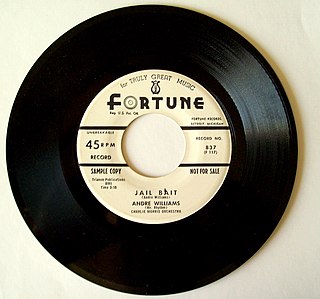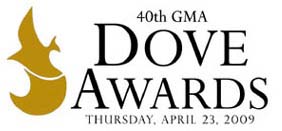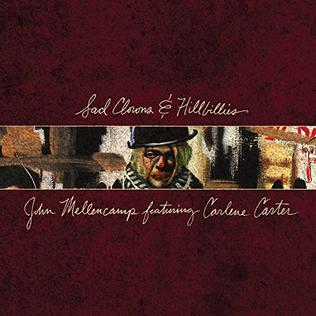Related Research Articles

"This Land Is Your Land" is one of the United States' most famous folk songs. Its lyrics were written by American folk singer Woody Guthrie in 1940, based on an existing melody, a Carter Family tune called "When the World's on Fire", in critical response to Irving Berlin's "God Bless America." When Guthrie was tired of hearing Kate Smith sing "God Bless America" on the radio in the late 1930s, he sarcastically called his song "God Blessed America for Me" before renaming it "This Land Is Your Land."

Odetta Holmes, known as Odetta, was an American singer, actress, guitarist, lyricist, and a civil and human rights activist, often referred to as "The Voice of the Civil Rights Movement". Her musical repertoire consisted largely of American folk music, blues, jazz, and spirituals. An important figure in the American folk music revival of the 1950s and 1960s, she influenced many of the key figures of the folk-revival of that time, including Bob Dylan, Joan Baez, Mavis Staples, and Janis Joplin. Time magazine included her recording of "Take This Hammer" on its list of the 100 Greatest Popular Songs, stating that "Rosa Parks was her No. 1 fan, and Martin Luther King Jr. called her the queen of American folk music."
Russian jokes, the most popular form of Russian humor, are short fictional stories or dialogs with a punch line.
Canaan Records is a Christian record label and is a subsidiary of Word Entertainment.

Fortune Records was an American family operated, independent record label located in Detroit, Michigan from 1946 to 1995. The label owners were Jack and Devora Brown, their son Sheldon Brown recorded for the label. Original releases tapered off after 1972 aside from a few albums in the mid-1980s. Fortune specialized in R&B, blues, soul and doo-wop music, although the label also released pop, big band, hillbilly, gospel, rock and roll, and polka records.

Odetta Sings Ballads and Blues is the debut solo album by American folk singer Odetta, first released in March or April 1957.

Songs of the Underground Railroad were spiritual and work songs used during the early-to-mid 19th century in the United States to encourage and convey coded information to escaping slaves as they moved along the various Underground Railroad routes. As it was illegal in most slave states to teach slaves to read or write, songs were used to communicate messages and directions about when, where, and how to escape, and warned of dangers and obstacles along the route.
Odetta and the Blues is an album by folk singer Odetta, released in 1962.

Diamonds in the Rough is the second studio album by American country-folk singer-songwriter John Prine, released in 1972.
"Take This Hammer" is a prison, logging, and railroad work song, which has the same Roud number as another song, "Nine Pound Hammer", with which it shares verses. "Swannanoa Tunnel" and "Asheville Junction" are similar. Together, this group of songs are referred to as "hammer songs" or "roll songs". Numerous bluegrass bands and singers like Scott McGill and Mississippi John Hurt also recorded commercial versions of this song, nearly all of them containing verses about the legendary spike driver, John Henry; and even when they do not, writes folklorist Kip Lornell, "one feels his strong and valorous presence in the song".
Odetta's discography is large and diverse, covering over 50 years and many record labels.

Gonna Let It Shine: A Concert for the Holidays, is a live album by American folk singer Odetta, released in 2005. It was recorded at Fordham University in New York City for a public radio broadcast.

Absolutely the Best is a compilation album by American folk singer Odetta, originally released in 2000.

The Tradition Masters is an album by American folk singer Odetta, released in 2002.

The 40th Annual 'GMA Dove Awards presentation was held on April 23, 2009 recognizing accomplishments of musicians for the year 2008. The show was held at the Grand Ole Opry House in Nashville, Tennessee, and was hosted by Rebecca St. James, Matthew West, and Lisa Kimmey.
"Wasn't That a Mighty Storm" is an American folk song concerning the 1900 hurricane that destroyed Galveston, Texas. It was revived and popularized by Eric Von Schmidt and Tom Rush in the 1960s, and later by the bluegrass musician Tony Rice.

Sad Clowns & Hillbillies is the 23rd studio album by American singer-songwriter and musician John Mellencamp. It was released on April 28, 2017 by Republic Records. The album features significant contributions from Carlene Carter, who worked with Mellencamp on Ghost Brothers of Darkland County, his musical collaboration with Stephen King, and Ithaca, the movie he scored for Meg Ryan. Carter opened every show of Mellencamp's 2015–2016 Plain Spoken Tour.
References
- ↑ Motive - Volume 23 1962 p.41 "... And finally the overwhelming affirmation, "I'm on my way and I won't turn back!"
- ↑ John Greenway American folksongs of protest 1953 p.100 A typical "going-to-Canaan" song; possibly an Underground Railroad song. The Carter Family, famous white hillbilly singers, have made a record of a version of this song utterly without slavery significance. I'm on my way, and I won't turn back!
- ↑ Mark Kailana Nelson Favorite Old-Time American Songs for Dulcimer 2011 p. 147 "I'm on my way and I won't turn back, I'm on my way and I won't turn back, I'm on my way and I won't turn back; I'm on my way, great God, I'm on my way. I asked my brother to come with me, I asked my brother to come with"